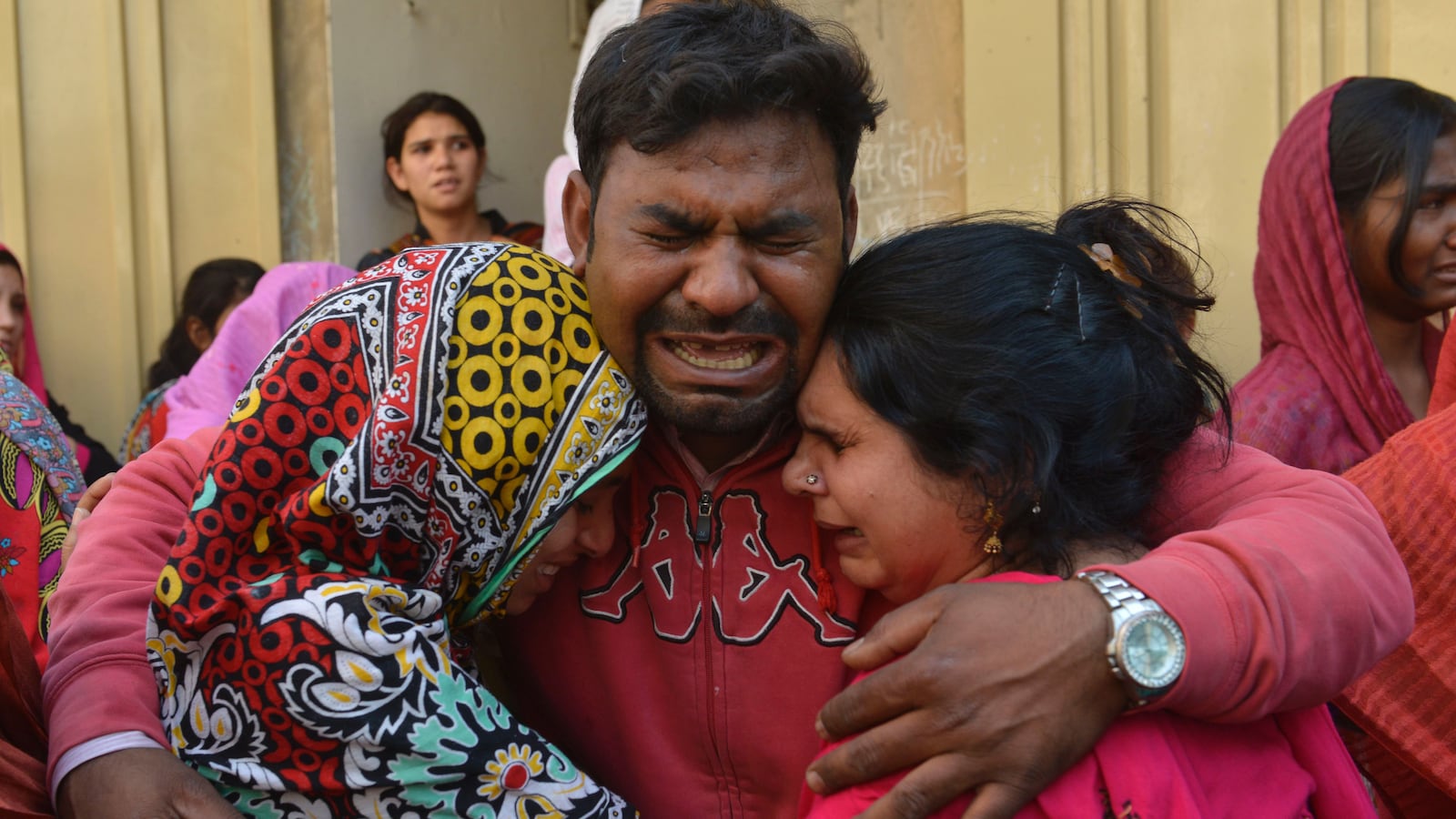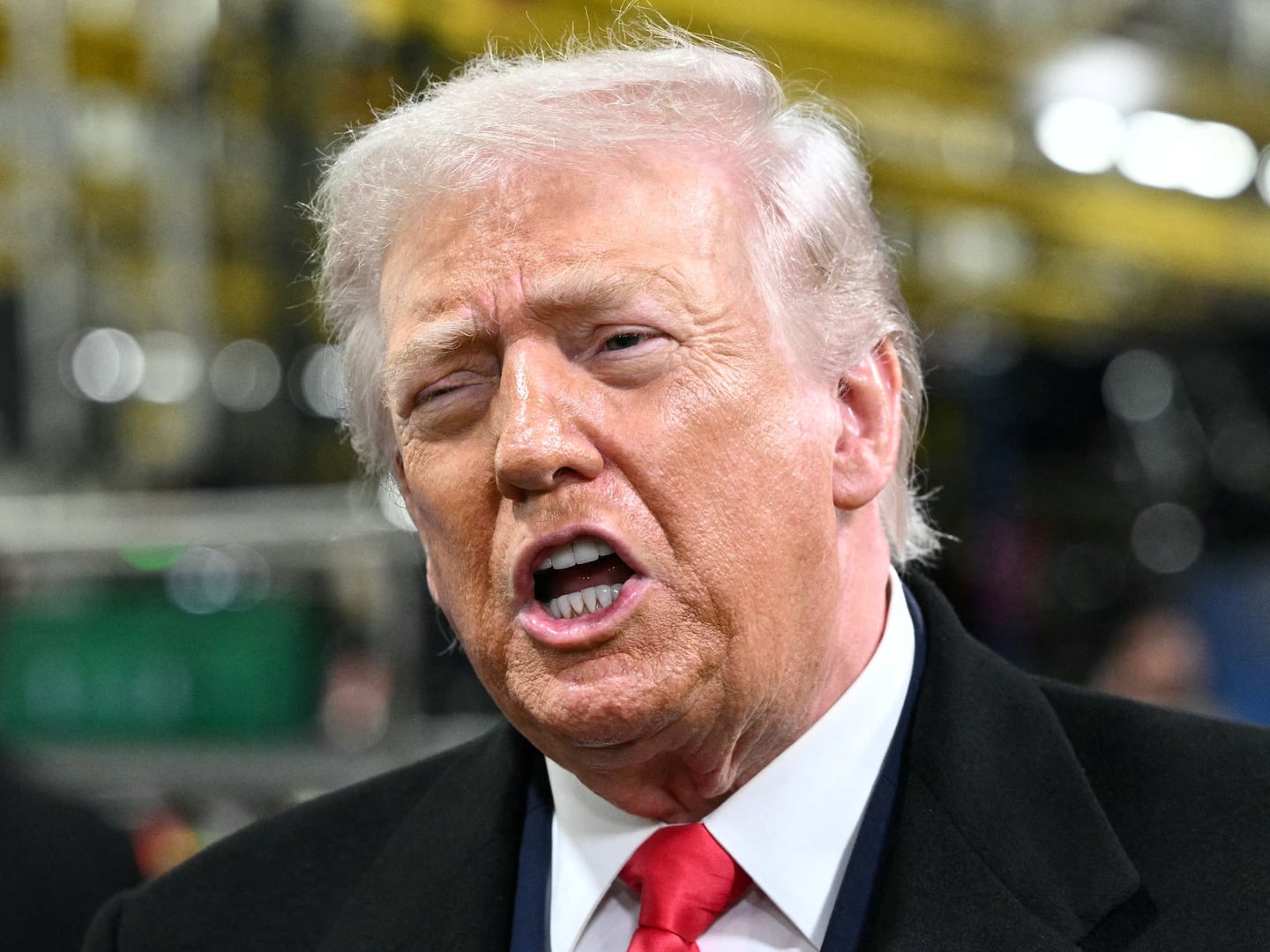LONDON — At least 72 people were killed and 300 injured by the suicide blast that shook the crowded Gulshan-i-Iqbal Park in Lahore, Pakistan, on the evening of Easter Sunday. Many of the victims were children. A Taliban splinter group called Jamaat-ul-Ahrar has claimed responsibility for the attack that targeted Pakistani Christians without warning. The group is believed to have carried out previous attacks, including the beheading of 23 paramilitary soldiers in February 2014. A spokesman, Ehsanullah Ehsan, said his group wanted to send a message that it has “entered Lahore.” He then threatened further atrocities.
Yesterday’s heartbreaking blasts made this the third time this month alone that Pakistan has been attacked by jihadists. All this just in Pakistan, just in March. And this needs to be understood in the context of the global jihadist insurgency that is upon us: unprecedented in its scale, pluralistic in its leadership, fractured in its strategy, nevertheless inspiring in its central message, and popular enough in its appeal that it is able to move masses.
Again, just in the month of March there have been jihadist attacks in eight different countries, and I’m not including the ongoing jihadist civil wars in Afghanistan or Syria, the similar one brewing in Libya, and smaller scale attacks and killings across the world. Turkey, Ivory Coast, Iraq, Mali, Nigeria, and Belgium have all fallen prey to this insurgency.
A jihadist guerrilla war is being waged against world order, and the international community is woefully unprepared to address the problem.
Many still deny this insurgency exists, and it is true that these countries have locally specific factors that contribute to their respective insurgent conditions. Yes, the groups behind these attacks are not under one central leadership, rather they are either affiliates or offshoots of competing jihadist groups.
But they all share one cause.
They are all—including ISIS—derived from, or affiliated to just two jihadist groupings: al Qaeda and the Taliban. In turn, jihadists all drink from the same doctrinal well of widespread, rigid Wahhabism. And they share the ideological aims of popular non-terrorist Islamists. They are all unified behind a theocratic desire to enforce a version of Sharia as law over society. Considering that non-violent Wahhabi and Islamist Muslims exist in their millions globally, this drastically increases the potential recruitment pool for jihadists. The insurgency could not succeed were this not so. There is no use in denying it.
For many years, liberals—and I speak as one—have refused to acknowledge the ideology of Islamism. All talk of “ideas” was seen to be nothing but a “neocon” line taken directly from the worst excesses of the George W. Bush years.
Ironically, due to this very fear of political incorrectness we wound up repeating many of the mistakes of the neocon era. While we feared to engage in a debate on values with Muslim communities, we tried to restrict the problem to the realm of mere criminality, as something to be dealt with by law enforcement or, failing a solution there, by the military—and ultimately by war, even if that word went unspoken. Under this doctrine, President Barack Obama developed a secret kill-list, preferring simply to assassinate his enemies, even if they were American citizens, and he has wound up dispatching more drone strikes abroad than Bush ever did.
Anything to avoid discussing ideas.
And so, as this global jihadist insurgency became impossible to ignore, we liberals reluctantly, euphemistically began naming the problem “violent extremism.” We used nauseating, limp State Department-coined phrases such as “al-Qaeda-inspired extremism” to refer to what was clearly an ideology. But as the assassination of Osama Bin Laden in his Pakistani hideout proved, we cannot arrest nor shoot our way out of this problem. “Defeating” al Qaeda was only ever going to give rise to a group like ISIS, because it was not al Qaeda that had “inspired extremism”; it was extremism that had inspired al Qaeda.
Our failure to recognize this as a civilizational struggle—one centered around values—has allowed the fundamentalist problem of Wahhabism, and the political problem of Islamism, to fester and metastasize. This struggle is an ideological one before it is a military or legal one. Vague platitudes that this has nothing to do with Islam—my own religion—are as unhelpful as saying that this is the essence of Islam. Extremism certainly has something to do with Islam. Not nothing, not everything, but something.
The Lahore bombing underscores the very religious character of the jihadists’ fanaticism. This was not about alienation in a European ghetto, or revenge for American and European airstrikes in the Middle East— the secular-sounding explanations offered as the motivations of people like those who carried out the Paris and Brussels attacks. Lahore was about pure, vicious religious intolerance, killing Christians—including Christian children—on Easter Sunday because they were Christians and not the kind of Muslims the murderers claim to be.
For years, this kind of brutal intolerance has been cultivated by Pakistan’s mullah mafia. These blasts came in the context of a March 27 deadline set by an alliance of more than 30 hard-line religious groups demanding that the provincial government in Lahore, the capital of Punjab, withdraw a new women’s rights bill that the mullahs oppose. This, after mobs were roused in support of Mumtaz Qadri, an extremist executed last month for killing the man he’d been hired as a bodyguard to protect in 2011, Punjab Governor Salmaan Taseer. The motive for the crime: Taseer had advocated reform of the blasphemy laws. Now several thousand of these blasphemy inquisitors have occupied a high-security zone in Islamabad to demand, among other things, the implementation of Sharia as law.
So, let there be no doubt. We are in the middle of a struggle against theocracy, and for secular liberal democratic values. Muslims and non-Muslims respectively must join together in that fight. This is why Trump’s divisive rhetoric is so unhelpful. Everyone must stand together to discredit Islamism, and to support a reform in Islamic discourse. All of us together are responsible for challenging intolerant, theocratic thinking before it spills over to violence. All of us together are responsible for refusing to allow religion to become the primary bond that divides us from “the other.”
As Pakistan shows us, this is a difficult, fraught, lifelong struggle that few are yet prepared to face. But face it we must.





